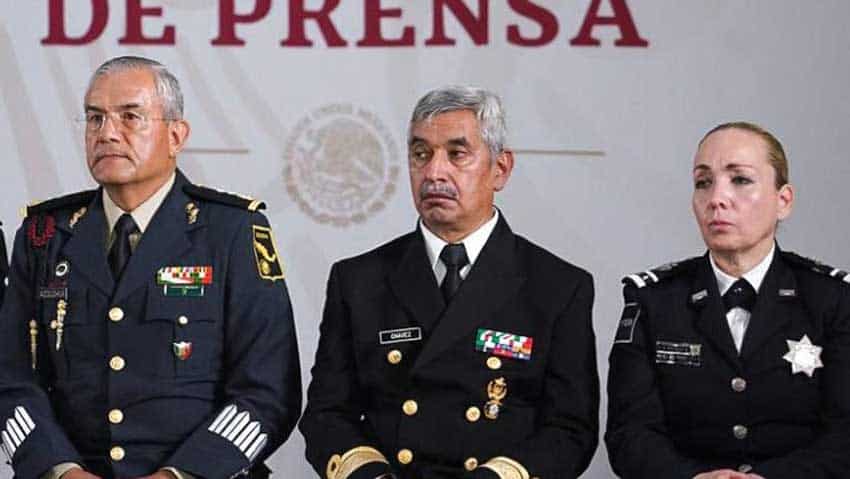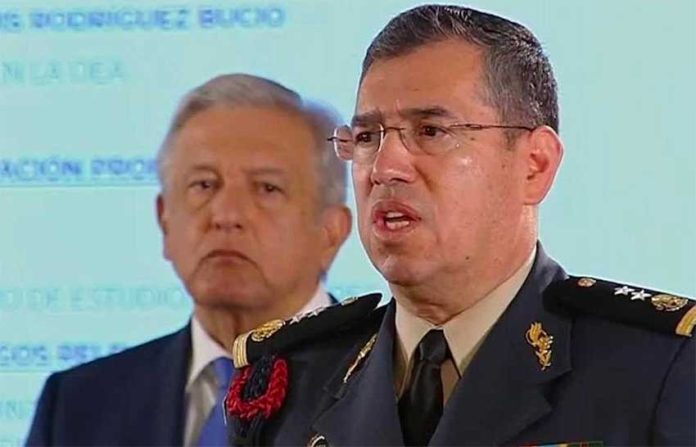An army general with extensive experience fighting and studying Mexico’s notorious drug cartels will be the commander of the National Guard, President López Obrador announced.
Luis Rodríguez Bucio, an expert in anti-narco strategy and intelligence, is currently in the process of retiring from the army but will begin his new post immediately.
The new security force was declared constitutional last month following the approval of the federal Congress and all 32 states. It will initially be made up of 60,000 members, including military police from the army and navy and Federal Police officers.
Rodríguez, a Michoacán native, has more than four decades of military experience since becoming a cadet in 1973.
In January 1989 he was transferred to the Estado Presidencial Mayor – the institution formerly charged with protecting the president of Mexico – and served as a deputy chief with responsibility for the planning and execution of logistics at events attended by then-president Carlos Salinas de Gortari.
In the early 1990s, Rodríguez rose to the rank of lieutenant colonel and served as deputy chief of an operation to eradicate marijuana and opium poppy plants in the Golden Triangle, a region made up of parts of the states of Sinaloa, Chihuahua and Durango.
Within army ranks, Rodríguez is considered to be the most experienced general in active service because of his expertise in military intelligence and counter-insurgency tactics, and extensive participation in public security tasks.
During his career, the 62-year-old has served as a commander of battalions deployed to operations in Temamatla, México state; Cancún, Quintana Roo; and Monterrey, Nuevo León.
Rodríguez was chief of military intelligence between 2004 and 2010 and between 2011 and 2013 he coordinated anti-narco operations in Nuevo León, Tamaulipas and San Luis Potosí.
The general also been the director of the military’s research and development center and until recently headed up the Council of Delegates of the Inter-American Defense Board in Washington D.C.
In addition to his on-the-ground experience fighting drug cartels, Rodríguez has also studied them extensively.

In 2003, he completed a master’s thesis entitled “Capacity of armed groups that have emerged in the country and their effect on national security” and in 2016 the general finished a PhD thesis called “The strategy to combat drug trafficking of president Felipe Calderón Hinojosa.”
Rodríguez has also completed military training courses in Germany.
At his morning press conference yesterday, López Obrador also announced other appointments to leadership positions in the National Guard.
Xicoténcatl de Azolohua Núñez Márquez, an army general, Patricia Rosalinda Trujillo Mariel, a Federal Police commissioner, and Gabriel García Chávez, a retired navy admiral, will head up the security force’s operational coordinating body.
Public Security Secretary Alfonso Durazo said “they will be in charge of the fundamental leadership duties of the National Guard” although they will be under the civilian authority of his department.
The military appointments triggered criticism yesterday from the president of the National Human Rights Commission.
Luis Raúl González Pérez said the commander of the force should ideally be someone with experience in civilian security forces.
And if the National Guard is to have leaders with a military background, they should have at least left their positions before being appointed to roles in the new security force, he added.
Rodríguez’s retirement from the army is expected to be formalized in August.
Non-governmental organizations rejected the current government’s plan to create the force, contending that it will only perpetuate the unsuccessful militarization model implemented by Felipe Calderón in 2006.
Source: Milenio (sp), Sin Embargo (sp)
